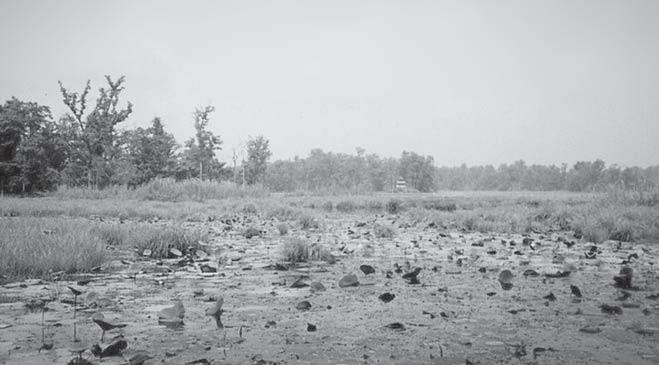Gandhiv Kafle
Other projects
21 Jul 2005
Creation of Community Awareness on Wetland Conservation for Birds among the Indigenous People Around Ghodaghodi Lake (A Ramsar Site), Kailali District, Nepal
The project aims to sustain the efforts of Wetland Friends of Nepal (WFN) on wetlands and biodiversity conservation together with wetland stakeholders by implementing an Integrated Wetland Education Model (INWEM).

Ghodaghodi Lake.
Ghodaghodi Lake is one of the Ramsar Sites and Important Bird Areas of Nepal, but it is manifested with multitude of problems caused by natural and human factors.
Along with the institutional strengthening of Wetland Friends of Nepal (WFN), this project will address specifically the following wetland issues:
Limited availability of educational materials (including curriculum) on wetlands and biodiversity in local language
Insufficiency of information sharing and networking among wetland conservationists and related stakeholders
Need of conservation authority working specifically on wetland issues,
Limited conservation awareness for wetlands and associated biodiversity conservation, and
Lack/insufficiency of basic knowledge on biodiversity surveys and monitoring among students and local farmers, and
To resolve the abovementioned issues, the following activities will be carried out with the help of this grant:
1. Preparation/translation of newsletters, brochures, educational kits, biodiversity survey manuals, wetland education curriculum and other related educational materials, and their dissemination in coordination with local, national and international wetland stakeholders
2. Continuity of online discussion forum at http://dgroups.org/groups/wetlandfriends in coordination with Ramsar CEPA e-list, Ramsar Forum e-list, WLI e-group, AWC e-group and so on for information exchange and networking.
3. Institutional strengthening of Wetland Friends of Nepal (WFN) and its sub-groups such as wetland clubs
4. Promoting Communication, Education and Public Awareness (CEPA) regarding wetland issues in coordination with local, national and international wetland stakeholders
5. Participatory biodiversity surveys with students and local farmers developing user-friendly survey protocols
It is expected that this project will be useful in connecting people with wetland at local, national and international level through a functional Wetland Friends Network.